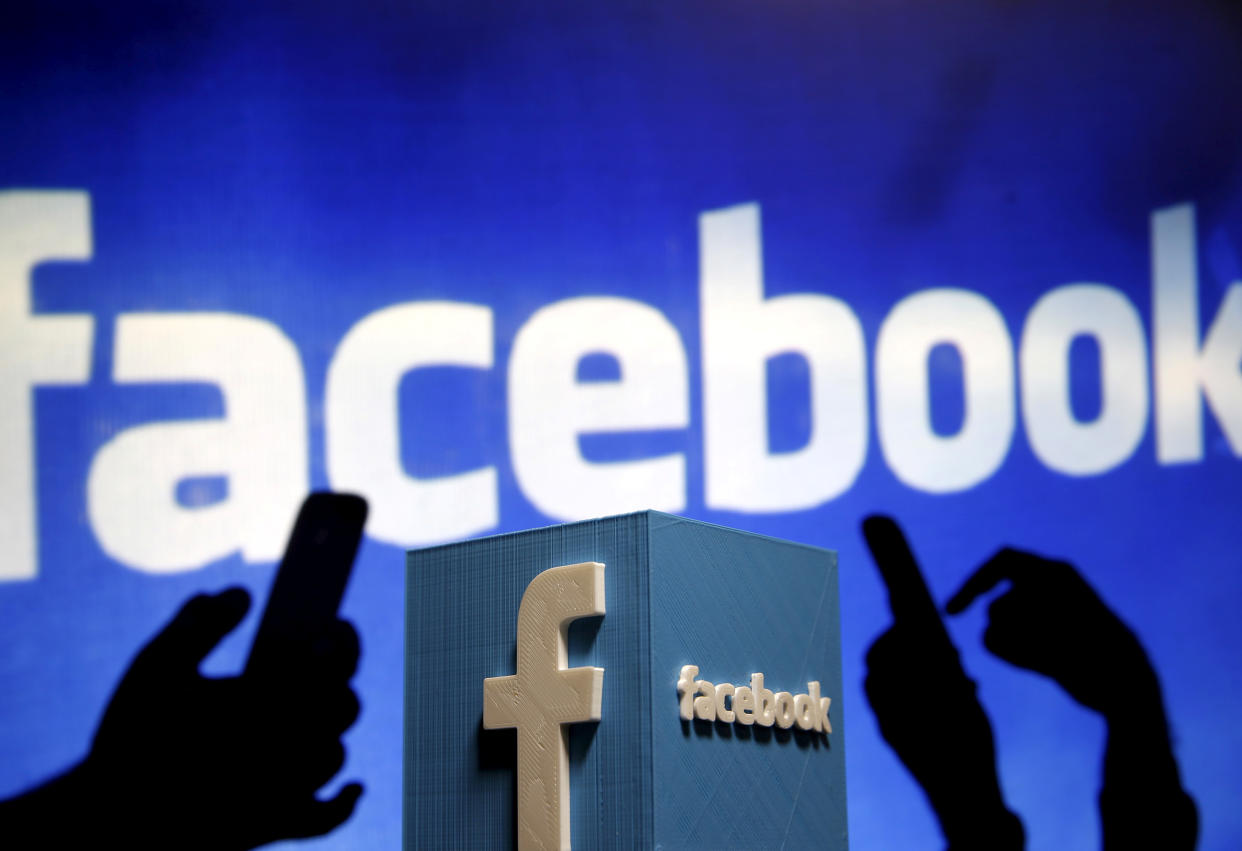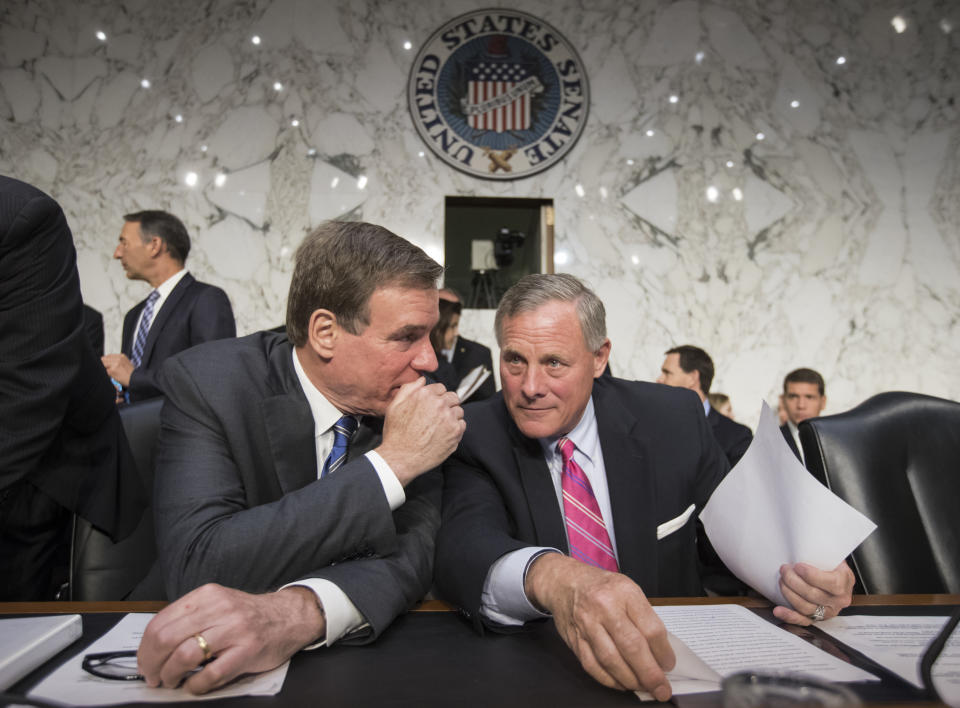Under fire, Facebook refuses to disclose political ads bought by Russian trolls

Facebook, which acknowledged this week that it sold $100,000 worth of political ads in the last two years to accounts linked to a Russian troll factory, came under stinging criticism Thursday over its refusal to release copies of the ads to the public — or to congressional investigators.
After denying for months that any Russian entities purchased ads on Facebook during last year’s election, the social media giant has admitted that it belatedly discovered that some 470 phony accounts linked to a shadowy St. Petersburg media firm with ties to the Kremlin. The firm allegedly placed ads on highly charged issues in American politics, such as LGBT and gun rights — ads that in some cases explicitly mentioned Donald Trump, Hillary Clinton and the 2016 election.
Facebook officials acknowledged the existence of the ads in a closed-door briefing for investigators for the House and Senate intelligence committees. The company showed what it described as some samples of the ads, but didn’t turn them over to investigators or release them to the media. Facebook said making the ads public would violate its strict privacy rules — even thought it acknowledges that most, if not all, of the accounts in question were registered under fake names and nonexistent entities and have since been removed from Facebook’s platform.
“We’re trying to be as transparent as possible, but there are certain restrictions on what we can disclose under our data policies,” a Facebook spokesman said in a response to a request from Yahoo News for copies of the ads.
That response brought a sharp retort Wednesday from campaign finance specialists and some congressional investigators, who noted that the exact wording of the questionable ads was critical. If the ads explicitly advocated or boosted one candidate or another, they would fall squarely under a federal law that bars foreign nationals from spending money to influence a U.S. election, making the individuals who paid for the ads — and any U.S. persons who might have assisted them — subject to criminal prosecution by the Justice Department and to heavy fines by the Federal Election Commission.
“I think this is shocking,” said Ron Fein, legal director for Free Speech for People, one of two campaign finance groups that have already filed complaints with the FEC seeking an investigation into Russian government spending on last year’s election. “Facebook has another thing coming if it thinks it can use its self-created privacy rules to prevent an honest accounting of what happened in the 2016 election,” Fein said.
Trevor Potter, a former FEC chairman who was chief counsel for John McCain’s 2008 presidential campaign and one of the authors of the landmark McCain-Feingold campaign finance law, said Facebook’s stand was especially puzzling given that the company was willing to show select samples of the ads to congressional investigators.
Potter said in an interview, “These advertisements were directed to the public, so they’ve already been put up publicly. And if they showed samples of the ads to investigators, they’ve already violated their confidentiality rules.”
The Facebook official declined to say whether special counsel Robert Mueller, who is investigating Russian interference in the election, has requested copies of the ads, or if the company has provided them. “Because there are ongoing government investigations, we don’t think it’s appropriate for us to be commenting on the specifics of what we are sharing or with who. We’ve been in touch with a number of government officials, and will continue to engage with them,” the official said. (A spokesman for Mueller declined comment.)
But Rachel Cohen, a spokeswoman for Democratic Sen. Mark Warner of Virginia, the ranking minority member on the Senate Intelligence Committee, said the senator still has “lots of questions” for Facebook, including “whether and how pages and groups may have been used to spread disinformation during the election, both through ads and user content.” She said Warner is seeking a committee hearing on the issue and left open the possibility that the senator would seek a subpoena for the material.
A possibly related effort to plant fake user content on Facebook was highlighted in a New York Times article posted Thursday that, as part of a collaboration with the cybersecurity firm FireEye, identified fake users such as a man who claimed to live in Harrisburg, Pa., and posted a Facebook message pointing users to a website, DCLeaks, that U.S. intelligence officials have concluded was a Russian front. “These guys show hidden truth about Hillary Clinton, George Soros and other leaders of the U.S.,” the apparently nonexistent Pennsylvanian wrote on June 8, 2016. “Visit #DCLeaks website. It’s really interesting!”

Facebook’s stand is typical of that taken by most social media companies, who generally resist sharing any information with the government about their users, even when it involves accounts that have been linked to terrorism or other criminal conduct. “Their default position is we never provide any information about our users unless forced to under the gun of a subpoena,” said Brett Kappel, a lawyer who specializes in federal election law.
Two years ago, when the Senate Intelligence Committee first sought information from Facebook about accounts linked to spreading propaganda for the Islamic State, “they told us to pound sand,” Sen. Richard Burr, Republican chairman of the committee, said, according to a CNN account of the panel’s clash with the social media company.
Since then, the company has expanded its efforts to remove terrorist-related content, setting up its own “counterterrorism squad” under the direction of a former federal prosecutor, Monika Bickert, including linguists who review material posted from across the globe and take down content that violate its policies.
But Russian political messaging and associated “fake news” accounts have presented special challenges and seemed to have largely escaped Facebook’s notice during last year’s election. The phony accounts that began placing political ads first popped up on its platform in June 2015 — the same month Trump declared his candidacy for president. They continued until May 2017, when Time magazine first reported the suspicions of U.S. intelligence officials that Russian trolls were placing political ads on Facebook; it was also around that time that Facebook says unidentified “U.S. officials” first alerted the company to what they had discovered.
What was especially alarming is that the accounts traced back to a company previously known as the Internet Research Agency, a St. Petersburg-based enterprise widely described as a “troll factory” and headed by Evgeny Prigozhin, a wealthy businessman and former restaurateur who is so close to the Russian president he is known as “Putin’s cook.”
The Internet Research Agency has been linked in multiple media accounts to the spreading of fake news stories around the world, including a phony video showing a U.S. soldier shooting a Koran and a fabricated account of an explosion at a Louisiana chemical plant.

More recently, according to a recent story in the English-language Russian newspaper Moscow Times, the agency has changed its name to the Federal News Agency and has created 16 news websites that employ over 200 full-time journalists and editors whose content attracts more than 30-million page views every month.
“Every day, the sites churn out dozens of articles that praise Putin, cast Ukraine as a failed Nazi state and expose the nefarious machinations of the United States,” the newspaper reported.
_____
Read more from Yahoo News:



